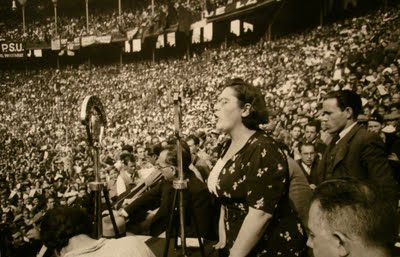British, Spanish and Irish feminist prochoice collectives My Belly is Mine, the Spanish Women’s Assembly and Speaking of I.M.E.L.D.A. will perform a protest action on the 2nd of August in central London to raise awareness of the Spanish anti-abortion bill, known as Gallardón’s law. The bill is soon to be presented in the Spanish Parliament. The action will also officially launch the new Spanish Women’s Abortion Support Group (SWASG 2.0), which aims to provide practical assistance for Spanish women travelling abroad to terminate pregnancies, should the bill be passed. This support group is the London branch of the International Federica Montseny Network, an initiative developed by Spanish feminists in Berlin.
Abortion Support Groups in London the 80s
This is not the first time a support group such as SWASG 2.0 has operated in London. Abortion Support Network currently helps many women from Ireland to have abortions in the UK each year. Abortion has never been decriminalised in the Irish Republic, whilst in Spain, abortion on request up till 14 weeks has only been available since 2010 and is now under threat by the antiabortion bill. In the early 80s, Ann Rossiter and Isabel Ros López, Irish and Spanish activists, both helped to set up the Irish Women’s Abortion Support Group (IWASG) and the Spanish Women’s Abortion Support Group (SWASG) respectively. In 1982, a staggering 21,000 women came from Spain to have abortions in England; over 8000 women came from Ireland, approximately 6000 of them from the Republic and the other 2000 from the six counties.
Prochoice campaigners now have the opportunity to hear Ann and Isabel explain why and how they set up the Irish and Spanish abortion support groups. The film Repeating Histories, produced by My Belly is Mine, Speaking of I.M.E.L.D.A and the London Irish Feminist Network (LIFN), features Ann and Isabel in conversation at The Feminist Library. Ann remembers:
“With all these women coming… we wondered what in the hell we could do. And it’s important to say that this was very small scale. By today’s standards, things were quite primitive.”
In the film, Ann and Isabel share their experiences of volunteering in both support groups: they describe the organisation and the day to day of these support operations, how they managed to procure special deals for the women at clinics and raise funds; they tell too of the international spirit of cooperation of prochoice activists at that time. Ann also warns of the difficult decisions and financial costs Spanish women will have to bear if Gallardón’s antiabortion law is passed.
Repeating Histories: A New Wave of Irish and Spanish Prochoice Activism in London
Ann and Isabel often collaborate with Speaking of I.M.E.L.D.A. and My Belly is Mine in prochoice actions. Isabel is also an advisor to SWASG 2.o. In fact, the name SWASG 2.o was chosen as a tribute to the work of Isabel and her colleagues. Not only national links are forged with this current wave of Irish and Spanish prochoice activism in the British capital, but also intergenerational ones.
For the 2 minute trailer of Repeating Histories, click here.
For the version with Spanish subtitles, click here.








